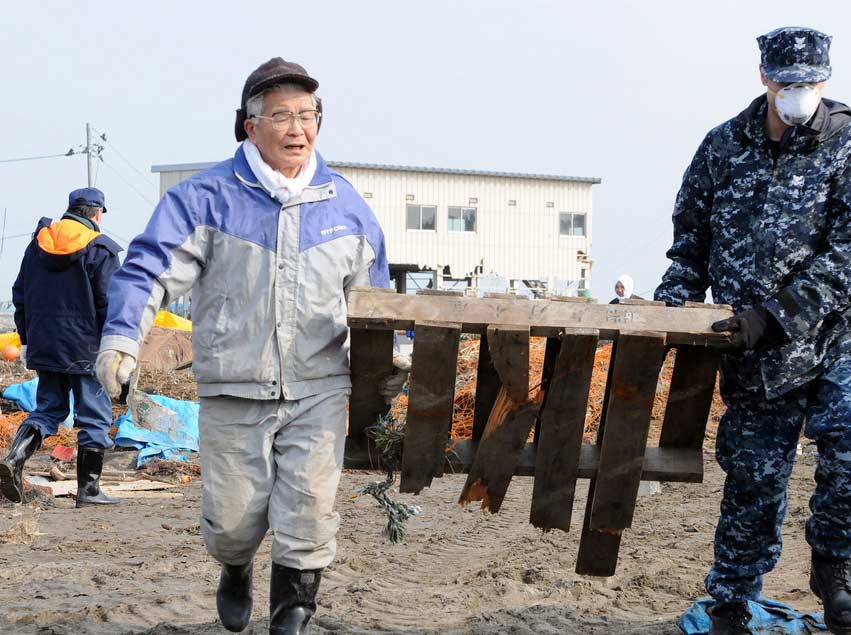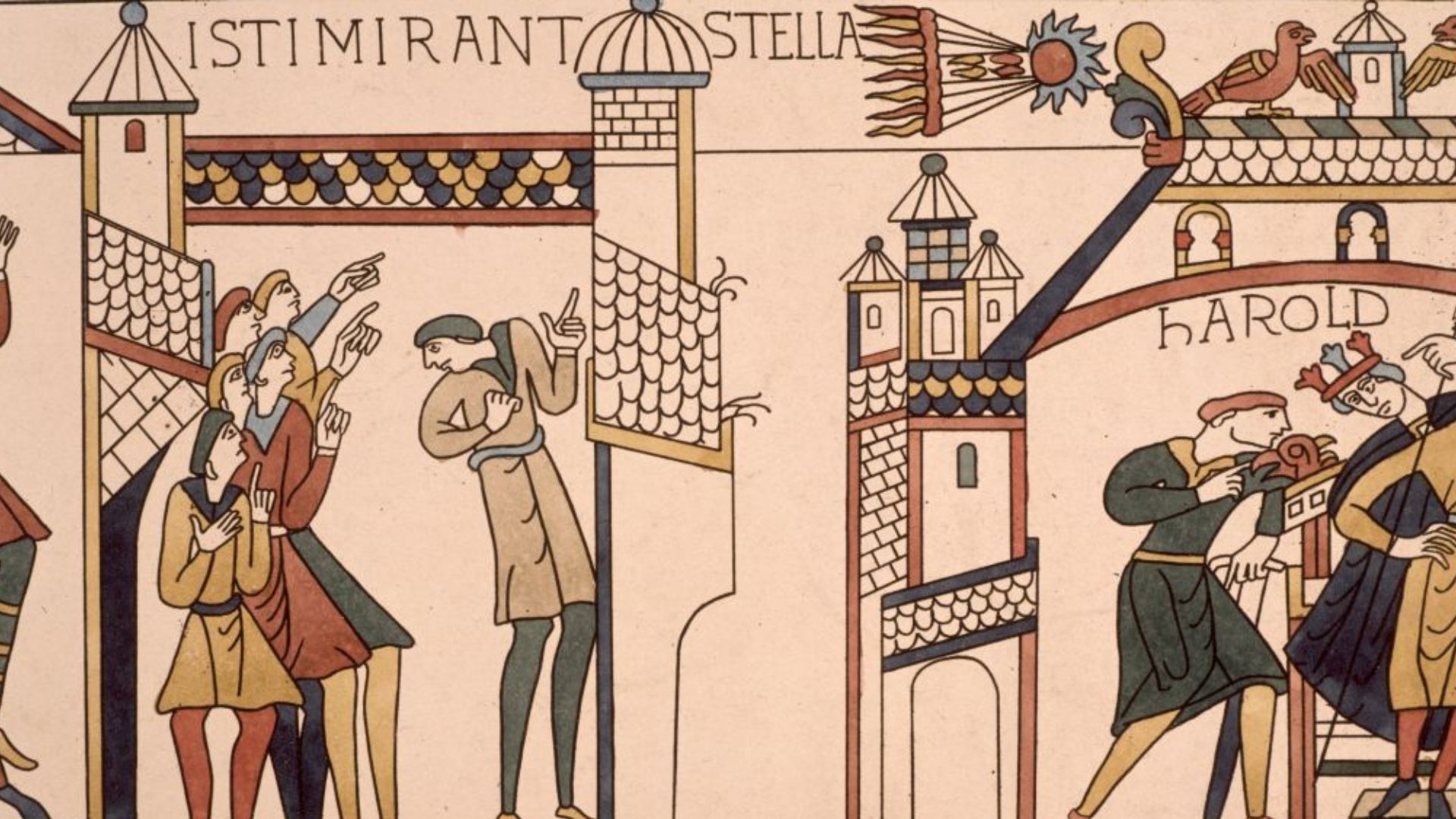Mental Fallout from Japan Disaster Hits Elderly Hard

In the aftermath of the Japan earthquake and tsunami, pictures and videos tell hundreds of tragic stories: A young man sobbing after learning his wife and child are dead; rescue workers combing through leveled towns, turning up many bodies and few survivors; gray-haired seniors, made homeless by the tsunami, sleeping in rows on shelter floors.
Everyone touched by the tsunami will face an uphill battle in coping with the devastation, psychologists say. But the elderly citizens of Japan are at particular risk.
"The elderly, the very young and the first responders are three of the most critical populations that we have to deal with in disaster response," said Joshua Klapow, a clinical psychologist at the University of Alabama, Birmingham.
"Generally speaking, elderly populations can be more vulnerable," Klapow told LiveScience. "If you are older and you have health problems, you don't have as much strength, you don't have as much endurance … The impact of the stress can have a much bigger physical toll."
Old and vulnerable
Japan's population skews old: More than one in five people in the country are older than 65, according to the CIA World Factbook. In the rural areas where the tsunami hit, that number is one in three.
In general, the elderly are hit hard by disasters. After Hurricane Katrina in 2005, 56 percent of the Katrina evacuees seen at the medical unit of Houston's Astrodome were over the age of 65, according to a Baylor College of Medicine report. According to the funding organization Grantmakers in Aging, at least 70 percent of those who died during Hurricane Katrina in 2005 were elderly. An analysis of an incomplete Knight-Ridder database of deaths done four months after the hurricane found that although people 60 and older were only 15 percent of the New Orleans area population, they made up 74 percent of the deaths.
Get the world’s most fascinating discoveries delivered straight to your inbox.
The mortality effect can linger long after the disaster has moved into the clean-up stage. One study, published in March in the Journals of Gerontology Series A, compared the mortality rates of people over age 90 in a year before the devastating 2008 Sichuan earthquake to a year after the quake. The researchers delayed their analysis of death records until seven weeks after the disaster to avoid catching any trauma casualties. Even so, the mortality rate for the nonagenarians doubled after the quake, rising from 8.3 percent to 16.2 percent.
The researchers didn't have information on cause of death for the Sichuanese dead, but small studies from prior disasters suggest that older people may experience biochemical changes after a severe stress that wears them down physically. A study of 42 survivors of the 1995 Kobe earthquake found increased blood protein levels after the earthquake compared with before the disaster.These increases have been linked with greater risk of strokes and heart attacks. The results were reported in 1997 in the Journal of the American College of Cardiology.
Getting past the stiff upper lip
Older people can struggle in the immediate aftermath of a disaster because of their physical vulnerabilities, Klapow said. They may lack needed medication. They're at risk of dehydration. Pre-existing health problems can make it harder to deal with additional stresses. [Read More: Saving Minds with Psychological First Aid]
As the disaster recedes and rebuilding begins, older adults can become "silent victims," said John Toner, a professor of medical psychology at Columbia University who was the chief editor of a book on disaster preparedness and mental health in older adults. Toner cited a friend who lost her son in the World Trade Center on 9/11. After the attacks, she focused so heavily on caring for her widowed daughter-in-law and grandchildren that she let her own depression go untreated.
The "stiff upper lip" phenomenon, in which elders hide their own struggles, may prevent them from getting help, Toner said. Survivor's guilt is another concern, said New York University social worker Tazuko Shibusawa.
"Older adults tend to have survivor's guilt anyway," Shibusawa told LiveScience. "It's sort of like, 'I've lived my life, why didn't they take me? Why did they take the young ones?’"
Risk versus resilience
In Japan, mental health (or "kokoro no kea," care for the heart) has been on rescuers' radar since the Kobe quake, Shibusawa said. But the lingering risk from damaged nuclear reactors means the disaster is not yet over. Anxiety is up in Tokyo, Yasushi Watanabe, a college professor who lives in the Tokyo suburb of Kamakura, wrote in an email to LiveScience. Ongoing fear has led to runs on bottled water, food and batteries, Watanabe said. [Top 10 Greatest Explosions Ever ]
For older people who lived through World War II, the nuclear fear is a unique source of worry, Toner said.
"The issue of post-traumatic stress disorder in the elderly is usually less of a problem than in most other ages, except for a few subgroups, particularly Holocaust survivors, veterans and those who experienced childhood abuse," Toner said. "Those who were directly affected by the atomic bomb at the end of World War II are probably, given what we know about the risk factors, even more vulnerable to developing mental health issues in this most recent trauma."
On the other hand, older adults' life experiences can also make them more resilient in the face of catastrophe, Toner said.
"There's a paradox in which the more frail elderly give us serious concerns, but those who are generally healthy tend to be very resilient," he said.
A video that made the rounds online after the tsunami illustrates this fortitude. In the video, Japanese rescuers lead an old man and woman out of a building where they had been trapped for three days. A news crew approaches and a reporter asks the man how he's doing. The man smiles and says he's okay because he lived through Japan's 1960 tsunami, which was triggered by a massive earthquake off the coast of Chile.
"I'm fine," the man repeats. Then he grins at the camera: "Let's rebuild again."
You can follow LiveScience senior writer Stephanie Pappas on Twitter @sipappas.

Stephanie Pappas is a contributing writer for Live Science, covering topics ranging from geoscience to archaeology to the human brain and behavior. She was previously a senior writer for Live Science but is now a freelancer based in Denver, Colorado, and regularly contributes to Scientific American and The Monitor, the monthly magazine of the American Psychological Association. Stephanie received a bachelor's degree in psychology from the University of South Carolina and a graduate certificate in science communication from the University of California, Santa Cruz.
 Live Science Plus
Live Science Plus





